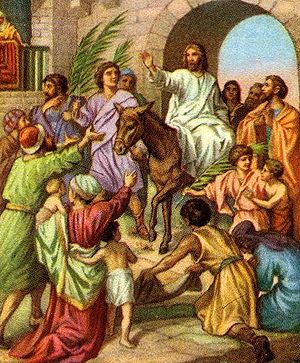
Rev. Dr. Vinod John @johnvinod | February 18, 2021
I would invite you today to read again the tiny book of Joel in one sitting as it has only three chapters. The message of the book of Joel is never passé. In fact, Joel’s message has relevance for the whole world today more than ever no matter where you live. It is expressly because Joel’s context and ours are quite similar today. In Joel’s time, Israel went through a devastating plague—an invasion of devouring locusts. They had eaten and destroyed everything in their way and turned the green pastures of Israel to desolate. The food supply was almost destroyed, and people were crying out for help.
“The seed is rotten under their clods, the garners are laid desolate, the barns are broken down; for the corn is withered. How do the beasts groan! the herds of cattle are perplexed, because they have no pasture; yea, the flocks of sheep are made desolate” (Joel 1: 18 KJV).
Moreover, the liturgical worship of God in the Temple was also adversely affected to the extent that its daily offerings had almost diminished:
“The grain offering and the drink offering are cut off from the house of the Lord. The priests mourn, the ministers of the Lord” … “Put on sackcloth and lament, you priests; wail, you ministers of the altar. Come, pass the night in sackcloth, you ministers of my God! Grain offering and drink offering are withheld from the house of your God” (Joel 1: 9; 13 NRSV)
We are in the second year of an unprecedented and deadly pandemic since 2020 and there seems to be no end in site, despite the new vaccines that might help prevent Covid-19 infections. The world economies are faltering and will remain unstable in the aftermath of this pandemic. Therefore, I think we need to heed prophet Joel’s timely call to repentance. While prophesying in the context of a dreadful plague of locusts that affected all aspects of their life, including the religious worship, Joel pleads with Israel to return to the Lord. He preaches a message of hope. He reveals the nature and intent of God, that is not to destroy the people of Israel but to save them. If they repented of their disobedience and returned from their evil ways to the living God, Joel promises that God would pity them and restore them. Joel also reveals that in a post repentance and restoration era, God would bring about a new reality, that is, the Spirit of God abiding with them (see, Joel 2: 28-29). We shall ponder on this aspect in the coming days along with Joel’s apocalyptic predictions.
However, today, let us shift our focus from the death, loss, and destruction brought about by the pandemic that we find ourselves in and instead let us focus upon the areas in our lives that need amending. What specific areas in our personal and church life do we need to do penitence? What are the specific areas in which we need to turn back from disobedience to obedience? May the Lord help us locate these areas and let us return to the Lord seeking His grace and forgiveness for our Creator God is merciful and will restore us.
In our churches, what we loved the most—our in-person corporate worship and fellowship—have been curtailed by this evil pandemic. However, let us use this time to reflect upon our church life and its sins, disobedience, and complicity. How has our church been doing in the midst of racism, sexism, bigotry, sectarianism, favoritism, ethnocentricity, preferentialism, xenophobia, discrimination, immorality, dogmatism, celebrity worship, false saviors, and several other areas that this Lent season may reveal to us? Perhaps, you do not see this visibly in your church, but has your church been apathetic to these issues and their presence in and around the church? If so, may we heed the call of Joel who called the Temple priests, too, to repentance:
"Put on sackcloth and lament, you priests; wail, you ministers of the altar. Come, pass the night in sackcloth, you ministers of my God!" (Joel 1:13 NRSV). “Let the priests, the ministers of the Lord, weep between the porch and the altar, and let them say, Spare thy people, O Lord, …” (Joel 2: 17 KJV).
For a paperback, please contact vinod@vinodjohn.com
2 Comments







